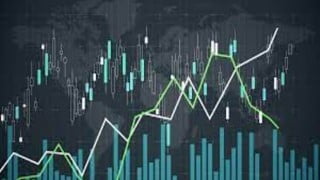Understanding our Political Economy
Gain a deep understanding of how our economy works and tackle today’s pressing issues like poverty, inequality, and climate change. Study fundamental economic principles and apply them to solve real-world problems. Explore Henry George’s timeless book, Progress and Poverty, which offers insights into persistent poverty and recurring unemployment. This course takes a non-technical approach, providing definitions, laws, and principles in a comprehensive manner. Dive into 7 lessons covering various aspects of economics and social justice. Recommended for beginners seeking a holistic understanding of economics.
What you’ll learn
- Students who take this course will gain an understanding of how our economy works and find out why a paradigm shift is a prerequisite for addressing today’s seemingly intractable problems such as poverty, wealth inequality and climate change.
The purpose of this course is to study fundamental economic principles and to apply them in solving today’s economic problems: poverty, inequality, unemployment, recessions, high taxes, inflation, etc.
The textbook used is Henry George’s masterwork, Progress and Poverty. Though this book first appeared in 1879, it is fully applicable to today’s conditions since the principles with which it deals are universal. A reading of the book will convince the student of its timeliness.
The basic problem which George set out to solve in this book is still today’s basic problem: Why, in spite of progress, does poverty persist?
Many answers have been given since George’s day, and many measures have been applied, but the problem still remains. The problems of the business cycle and recurring periods of unemployment have also defied solution. In this course, we look into George’s analysis to which sufficient attention has not been paid, but which has never been successfully refuted.
A fundamental and non-technical approach to economics is taken in this course. Basic terms are defined, basic economic laws are sought and basic principles are applied. Study supplements are offered for each lesson — not as a substitute for the text but to augment it — by elaborating certain points, by applying the principles to current conditions and by answering the most frequently asked questions.
The course is divided into 7 lessons.
The Rise of Economics
Essential Elements of Political Economy
The Natural Laws of Production and Distribution of Wealth
Money, Currency and Credit
Rent Privatization and the Boom-Bust Cycle
Holes in the Neo-classical Price Theory
What to do when the Perfect is out of Reach
It will be seen that the last part of the course goes beyond economics and into social justice. The theme as it unfolds becomes more fascinating and will reward the student who pursues it to the end.
Each lesson has online assignments and in some cases, supplemental reading and a set of questions for offline practice.
To get the most from this course, it is highly recommended to read the entire text of Progress and Poverty.
Who this course is for:
- Beginners
User Reviews
Be the first to review “Understanding our Political Economy”
You must be logged in to post a review.







There are no reviews yet.